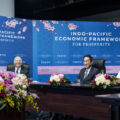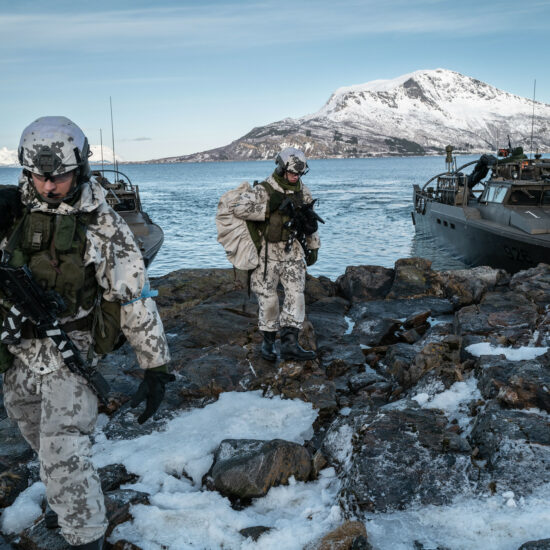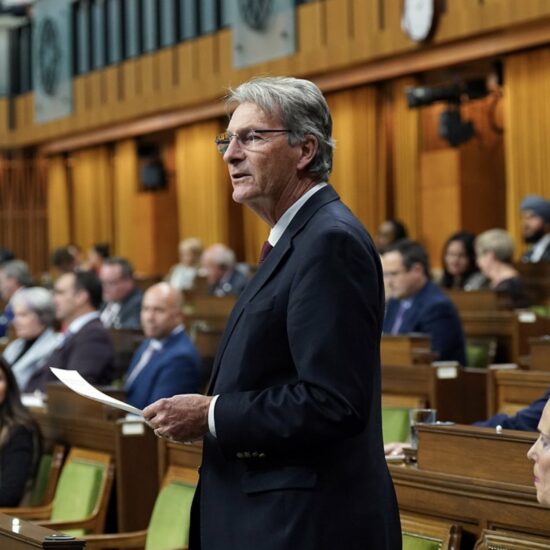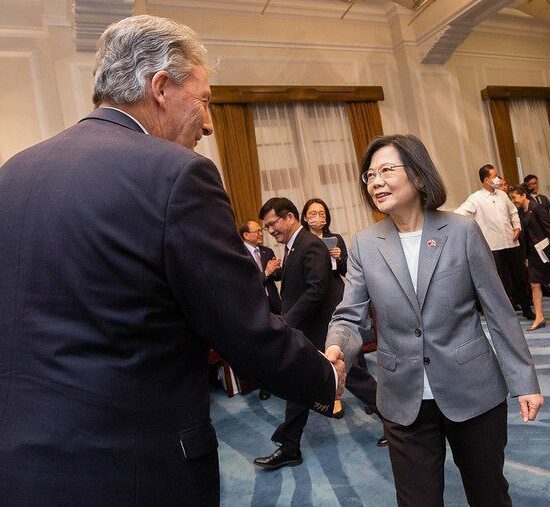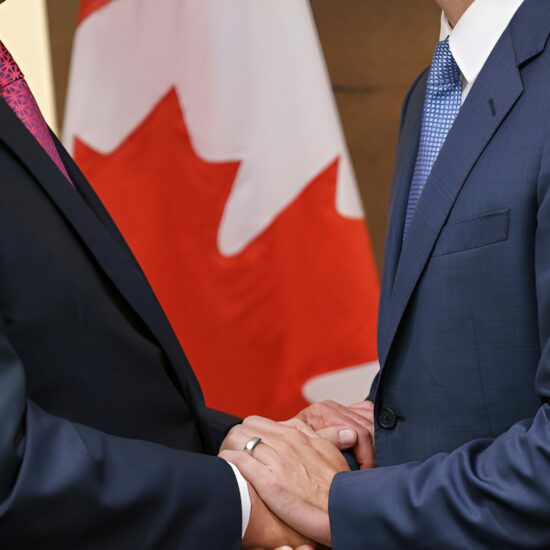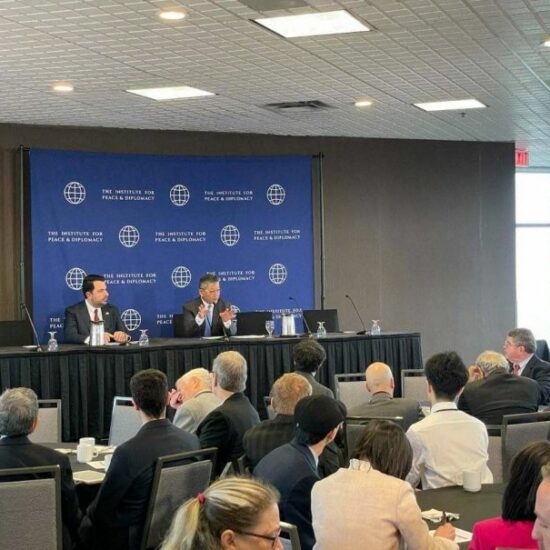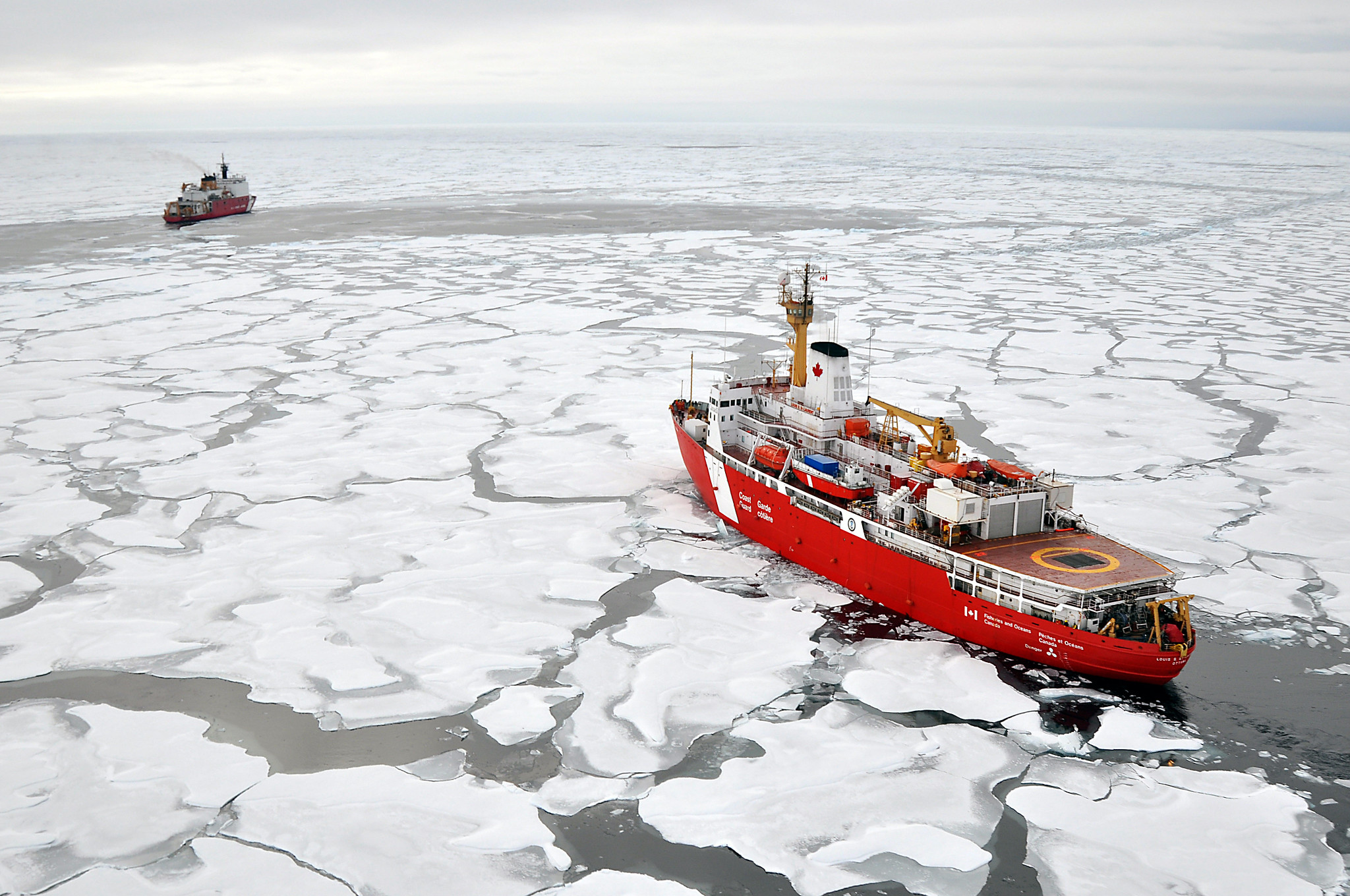
Image credit: Wikimedia
By Adam Lajeunesse
As Canada’s party leaders spread out to campaign across the country, the nation is unlikely to see any deep discussions of Arctic sovereignty and security. Typically a peripheral consideration, the question is distant from most Canadians’ immediate concerns and often glossed over through general pledges to defend the North. Historically, this low prioritization has been supported by the low tensions in – and limited access to – the Arctic region.
Over the next ten years, however, Canada’s government may be faced with a radically new set of security challenges in the North. The time to start preparing for it is now.
A New Security Dynamic
That the Arctic is changing rapidly is well established. The shipping season is growing longer and Canada’s internal waters and exclusive economic zone (EEZ) in the North are becoming more accessible. Crucially, both friends and competitors are showing new interest in the North, matched by a concerted effort to expand their operational capabilities. In only the past three years the United States has grasped the strategic importance of the region, with new Arctic strategies cascading out from the US Coast Guard (2019), Department of Defense (2019), Air Force (2020), Army (2021) and Navy (2021). China is expanding its icebreaker fleet to possibly include a third (potentially nuclear) vessel, while Russia has spent decades rebuilding its capabilities in the North. Commercial shipping and cruise activity is also expanding – a trend that is certain to continue.
This growing interest and investment in the region is unlikely to result in armed conflict. Ownership of northern resources is not in question and there are no territorial disputes to speak of. What will soon emerge, however, is a more complex security environment centred around the need to monitor a busier region while managing an evolving set of unconventional security threats.
For instance, as the world’s fish stocks migrate north, Canada’s EEZ will take on new economic importance. While there is currently a moratorium on Arctic fisheries, a commercially viable stock in the region will eventually attract the attention of China’s fishing fleets. Those ships have developed a reputation for rapacious exploitation of the global commons and for brazenly violating national jurisdictions. As has been the case in the waters of the South China Sea and further afield, these fleets – while ostensibly civilian – serve state policy. Their arrival in the Arctic would introduce a new element of complexity to Canadian security and international relations.
Likewise, as Arctic shipping routes become increasingly accessible, new non-state actors will appear. While these are not likely to be anything as threatening as a Russian warship or Chinese submarine, they will need to be tracked and – depending on their nature – perhaps stopped or helped. Right now, a Chinese sailor named Zhai Mo is south of Greenland, attempting a circumnavigation of the Arctic. A private citizen, Zhai is nevertheless supported by the Chinese government and represents a quasi-state actor moving through Canadian waters, the legal status of which China has never explicitly recognized. New cruise ship activity and resource shipping also requires more surveillance and response capacity, while rogue expeditions – like that of New Zealander Peter Smith in 2019 – will complicate Canada’s task of asserting complete control over its sovereign waters.
Managing this increasing activity will be an important task for both practical and political reasons. From a practical perspective, the region’s fragile environment is at risk – as are the Northern communities that rely upon it. Canada has a robust regulatory framework in place but enforcing it will grow more complicated as more ships from more states move into Canadian waters and the surrounding EEZ.
Politically, Canada will face growing pressure to ensure that its rules and regulations are followed by foreign ships, given that few states recognize the country’s claim to the Northwest Passage as historic internal waters. While an explicit refusal to request Canadian permission to transit our waters (as was the case with the Kiwi Roa in 2020)will not seriously damage national sovereignty, it will create new complications and demand more attention and resources.
Liberal and Conservative Political Visions
While every political party acknowledges the importance of the Arctic, they approach the question of sovereignty and security from very different perspectives.
When coming to power in 2015, the Liberal Party under Justin Trudeau pledged a very different approach to the region. In practice, that has meant radically expanded consultations and a renewed focus on community health. The Liberals’ “Arctic and Northern Foreign Policy Framework” is a wide-ranging document, pledging to end poverty, eradicate hunger, reduce suicides, close the gap on education outcomes, provide greater access to skills developments, adopt culturally appropriate approaches to justice issues, and eliminate the housing crisis in the North. It was expansive but short on substance and panned by critics as incoherent and lacking in concrete commitments.
There have been few new “hard security” initiatives from the Liberals geared to monitoring and interdicting activity in the North. The 2021 Liberal platform makes only one mention of Arctic security – and that is simply a renewal of its pledge to modernize the North Warning System. This shortage of big investments is at least partly due to the Liberals having inherited Prime Minister Stephen Harper’s big projects. Some of these have even been expanded: the size of Canada’s Arctic and Offshore Patrol Ships and icebreaker fleets, for instance.
The Liberals also approach the Arctic with a conception of sovereignty and security that is different from that of the previous Conservative government. Stephen Harper once said that Arctic sovereignty was secured only with “boots on the Arctic tundra” and “more ships in the icy water.” That state-centric approach is based on a traditional notion of sovereignty, centred around the state’s monopoly of force.
By contrast, the Liberals under Trudeau have approached sovereignty from the community perspective, on the understanding that sovereignty is best expressed through “strong, self-reliant people and communities working together for a vibrant, prosperous and sustainable Arctic.” This assumes that a defence of sovereignty comes from the North, rather than being projected into it. Indeed, even the new security programs initiated by the Liberals are community-based: the Coast Guard Auxiliary, the Indigenous Community Boat Volunteer Pilot Program, Inuit Guardians, and the new Inshore Rescue Boat Station in Rankin Inlet.
The Conservative focus on state-centric security remains on display in the current campaign. For the Conservatives, the threat to sovereignty stems less from human security concerns and more from “Russian territorial aggression” and China’s Arctic ambitions. Like Harper before him, O’Toole has promised armed icebreakers and a new naval base (at Churchill). In addition, the Conservative platform has a NATO Centre of Excellence for Arctic Defence at Resolute Bay, as well as a host of smaller initiatives designed to buttress the Canadian Armed Forces’ ability to operate in the North.
Some of these ideas are less sophisticated than they could be: Harper’s government abandoned the idea of armed icebreakers early in his tenure for good reason, while Churchill is not much closer to the Northwest Passage than St. John’s NL. Likewise, expanding the Rangers has long been easier said than done. Still, the Conservative philosophy represents an ambitious desire to ensure that Canada has the resources to meet the projected opening of the Arctic.
A Path Forward
Meeting an increasingly complex Arctic environment will require a melding of the two approaches. Tracking and policing dozens – if not hundreds – of civilian and state vessels across over a million square kilometres of Arctic maritime space will necessitate the kinds of big investments in ships, infrastructure and surveillance that the Conservatives have favoured since 2007. It will also require the kind of focus and support from the top that was more evident with Prime Minister Harper than Trudeau.
Yet a more comprehensive approach to security will also require attention to community-based programs more common to Liberal platforms. There is a limit to the capabilities which can be projected north from the South without support from local communities. Local infrastructure development will become increasingly essential, as will the more dispersed, community-centric emphasis on search and rescue and stewardship activities favoured by Trudeau’s government.
In the years to come the Arctic is going to become a far busier and more complex security environment. Canada will need to pay more attention to who is in the region and what they’re doing. The best path forward may not lie in either the Liberal or Conservative election platforms, but rather in a merger of what is best in each.
Dr. Adam Lajeunesse is the Irving Shipbuilding Chair in Canadian Arctic Marine Security Policy and an Assistant Professor at the Brian Mulroney Institute of Government, St. Francis Xavier University.

